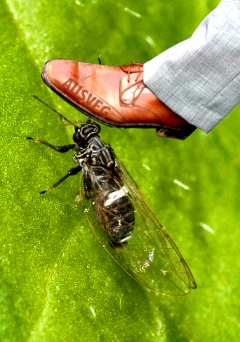New role takes bug fight to the farm gate
 The industry body representing Australia’s vegetable growers has taken steps to protect its crop.
The industry body representing Australia’s vegetable growers has taken steps to protect its crop.
Ausveg and Plant Health Australia (PHA) have used the levy raised from farmers around the country to appoint an officer in charge of biosecurity, who will work directly with growers to make sure they get the maximum yield.
Australia’s remoteness is both a benefit and a hazard when it comes to biosecurity. Our disconnection means the country is less likely to have contact with bugs and diseases that plague other nations, but when something does make it to our shores the pristine Australian ecosystem is often ill-equipped and easily damaged.
Protecting the industry that could one day feed a starving planet will be the main role of the newly-appointed officer, Mr Dean Schrieke. Ausveg says the role is part of a two and a half year program to improve biosecurity management and preparedness.
According to Ausveg CEO Richard Mulcahy, the engagement of a dedicated officer signals how seriously the industry takes threats to its livelihood.
“This program aims to boost on-farm biosecurity by raising awareness among growers of the priority pest threats to the vegetable and potato industries and increasing the use of the best biosecurity practices on-farm,” he said.
Mr Mulcahy says a few new protocols may be all some farms need.
“Key on-farm biosecurity practices include restricting access of visitors to reduce the risk of introducing new pests and maintaining good farm hygiene.
“These are simple and inexpensive practices that provide a great deal of protection from pests for individual farms and for the industry.”
Greg Fraser, Executive Director and CEO of PHA, says the program hopes to help through education as well.
“In addition to promoting good on-farm biosecurity practices, the program will ensure that growers know about the exotic pests that we most want to keep out of Australia, such as the Tomato-potato psyllid,” he said.
“That’s important because should one of these potentially devastating pests get through border controls it’s essential that we find out quickly to give the best chance of eradicating it.”








 Print
Print